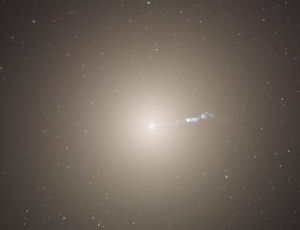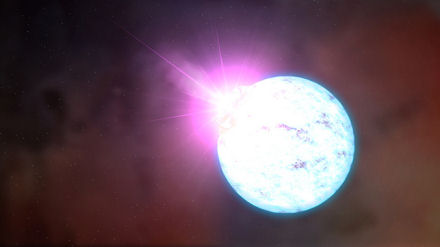
Astronomers from Yale and Leiden University in The Netherlands have discovered that old stars dominated many large galaxies in the early universe, raising the issue of why these galaxies progressed into galactic adulthood so early on in the life of the universe.
Cosmologists know that every year, only a handful of new stars are born out of the gas that fills the spaces in galaxies like the Milky Way. So, to account for the large number of stars in the universe today (around 400 billion in the Milky Way alone) it was thought that the stellar birth rate must have been much higher in the past.
“The unexpected finding is what was not found – ionized hydrogen, the tell-tale signature of star birth. Remarkably, for nine of the twenty galaxies that we observed, this signature is not seen at all,” said researcher Pieter van Dokkum. “It gives a firm limit on the stellar birth rate in these objects.”
“Our new results imply that the stars in many large galaxies were born when the universe was in its infancy, in the first few billion years after the big bang,” added research leader Mariska Kriek. “The results confirm what some astronomers had suspected – galaxies seem to have some method of birth control that is very effective.”
The new study adds weight to the idea that in big galaxies, the formation of new stars was significantly suppressed after an initial period of very vigorous activity. “These galaxies had a very violent early youth, but rose into stable adulthood well before many galaxies like the Milky Way were even in kindergarten,” explained Kriek.
One possibility behind the low birth rate is that enormous black holes in the centers of large galaxies may be responsible for suppressing star formation. It’s speculated that the huge amounts of energy released from a black hole may dilute interstellar gas sufficiently to prevent future star birth. “Evidence for the presence of these black holes is seen in several of the galaxies studied, lending support to the idea that black holes serve as cosmic contraceptives,” said van Dokkum.









![Star Formation [Counterstrike] ENG Battletech TCG picture](/store/img/g/jlgAAOSwa1Rl4FU5/s-l225/Star-Formation-Counterstrike-ENG-Battletech-TCG.jpg)








Comments are closed.